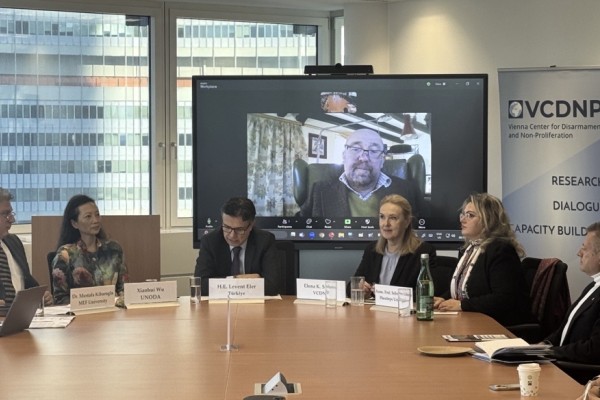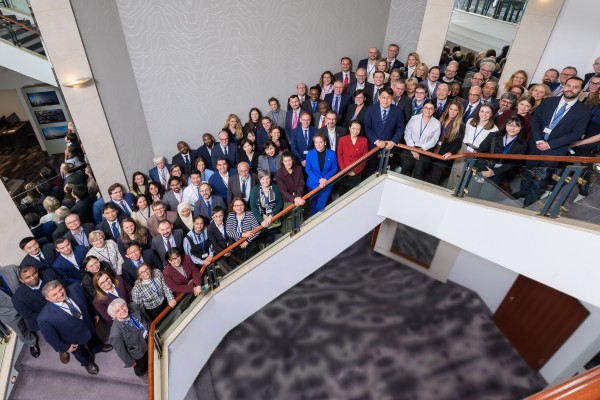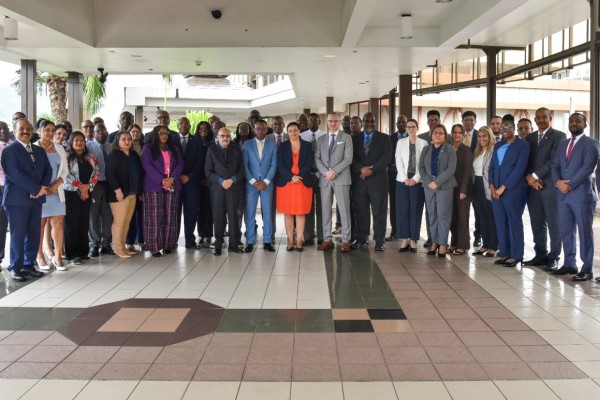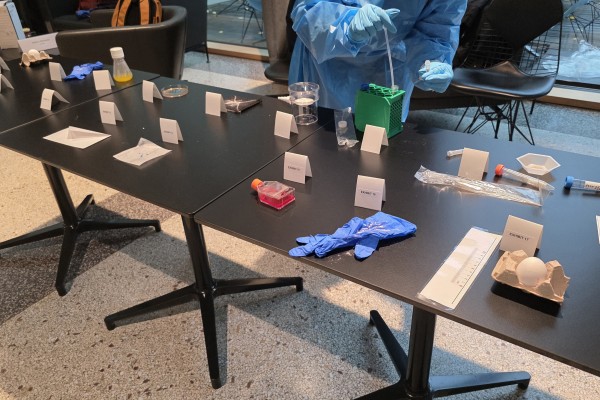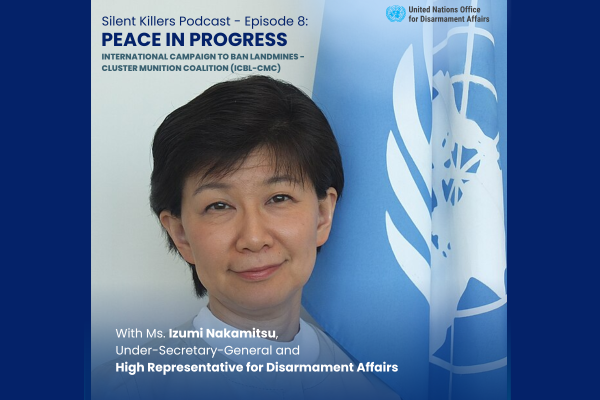UNODA strengthens partnerships with ECOWAS, Nigerian authorities and the European Union to advance peace and disarmament in West Africa
Abuja, Nigeria, 5–7 August 2025
In the margin of the UNREC–ECOWAS Regional Strategic Workshop on “Gender Mainstreaming in Small Arms Control in West Africa”, Adedeji Ebo, Director and Deputy to the High Representative for Disarmament Affairs (UNODA), undertook a high-level mission to Nigeria from 5 to 7 August 2025 to strengthen engagement with national, regional and international partners in support of peace, security and disarmament in West Africa.
The mission aimed to strengthen UNODA’s partnerships with national, regional, and international authorities, advance cooperation on small arms control, and reinforce regional peace, security, and disarmament frameworks in West Africa. The timing of the mission coincided with the workshop, providing an opportunity to engage key stakeholders on both technical and strategic priorities, including gender-responsive approaches to arms control, emerging threats, and regional security challenges.
Strengthening UNODA–ECOWAS cooperation
At the ECOWAS Headquarters in Abuja, the Director met with H.E. Mr. Omar Alieu Touray, President of the ECOWAS Commission, and H.E. Ambassador Mr. Abdel-Fatau Musah, Commissioner for Political Affairs, Peace and Security. Discussions focused on updating the 2009 UNODA–ECOWAS Memorandum of Understanding and ensuring its alignment with today’s peace and security challenges.

A dedicated UNODA–ECOWAS Strategic Dialogue brought together senior officials to explore ways to reinforce cooperation, particularly on the implementation of the ECOWAS Convention on Small Arms and Light Weapons (SALW). Exchanges also addressed emerging threats such as illicit arms flows, improvised explosive devices, drones, artificial intelligence, and cyber-enabled trafficking.

Both sides agreed to strengthen their cooperation on disarmament, non-proliferation through enhanced support to national commissions, and consider a future review of the Convention to reflect new realities. The consultations reaffirmed the strong UNODA–ECOWAS partnership in advancing peace, security and sustainable development in West Africa.
Engaging with Nigerian authorities at the highest level
On 5 August, the Director and Deputy to the High Representative met with National Security Adviser Nuhu Ribadu and Minister of Defence Mohammed Badaru Abubakar, commending Nigeria’s leadership following the 2024 presidential assent to the NCCSALW Bill. This landmark legislation, signed by President Bola Ahmed Tinubu, GCFR, established the National Centre for the Control of Small Arms and Light Weapons (NCCSALW) as a statutory institution with a clear legal mandate to coordinate Nigeria’s response to the proliferation of illicit arms.

On 7 August, he held talks with the Inspector General of the Nigerian Police (IGP), Kayode Adeolu Egbetokun, who underlined the serious security threat posed by illicit weapons and reaffirmed the Police Force’s commitment to arms recovery operations, intelligence-led investigations, and strengthened international partnerships.
During a working visit to the NCCSALW Headquarters, UNODA engaged with the Centre’s senior leadership, including Director General DIG Johnson Babatunde Kokumo. The NCCSALW presented its achievements since its formal establishment in 2024, highlighting the destruction of nearly 15,800 illicit weapons and significant advances in institutional development. The Centre also outlined its future priorities, including strengthening border management, developing robust national data systems, and improving secure storage facilities. Adedeji Ebo commended the Centre’s progress and reiterated UNODA’s readiness to provide technical support and capacity-building, emphasizing Nigeria’s potential to serve as a regional model for effective arms control in West Africa.

Consolidating partnership with the European Union
On 6 August, the Director and Deputy to the High Representative met with Zissimos Vergos, Chargé d’Affaires of the EU Delegation to Nigeria and ECOWAS. The meeting reaffirmed the long-standing partnership between UNODA and the European Union, highlighting their shared commitment to advancing arms control and disarmament in West Africa.
Both sides stressed the importance of translating international frameworks into concrete national action plans, adapted to local contexts and priorities. Nigeria was identified as a key country where further collaboration could generate visible impact, including support to national institutions such as the NCCSALW.
The discussions concluded with a shared commitment to strengthen cooperation and ensure that joint initiatives deliver demand-driven results that reinforce peace, security, and sustainable development across the region.

Renewing commitment to peace and security in West Africa
This mission reinforced UNODA’s strategic partnerships with ECOWAS, Nigerian authorities, and the European Union, underlining a shared determination to adapt arms control and disarmament frameworks to new and emerging security challenges. The engagements also underscored the importance of supporting national institutions such as the NCCSALW in their efforts to combat illicit arms proliferation and enhance regional stability.
Through these initiatives, UNODA reaffirms its commitment to working with national, regional and international partners to advance peace, disarmament, and security in West Africa.
“Nigeria has the potential to serve as a model for effective arms control, both regionally and globally. By strengthening partnerships with national institutions like the NCCSALW, we can advance peace, security and sustainable development across West Africa,” said the Director.
